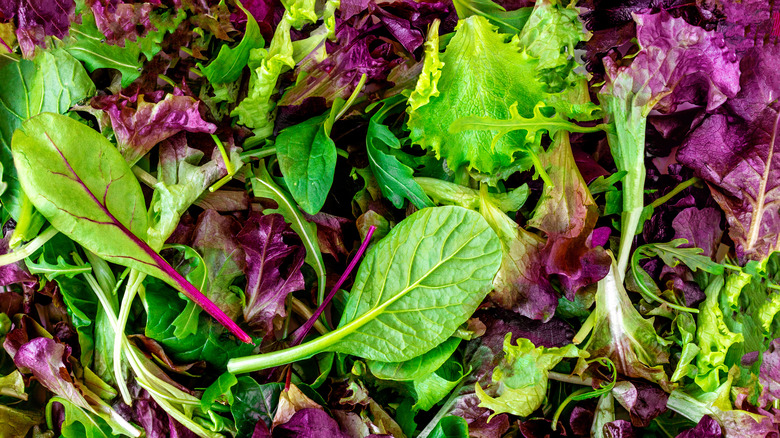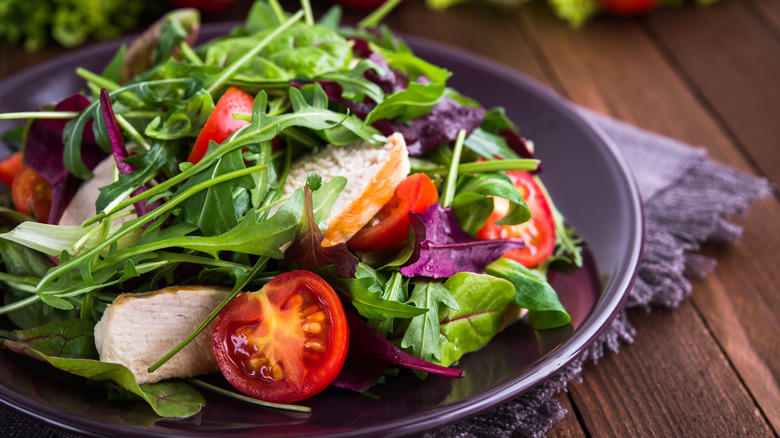What Is Mesclun Salad Mix (& Is It The Same As Spring Mix)?
Poor Lisa Simpson. On the episode "Lisa the Vegetarian," she is famously roasted by her family (including a reluctant Marge) for the overtures she makes to her family in regard to a backyard BBQ. Rejecting her suggestion for a meat-free spread, her family begins a conga line, singing, "You don't win friends with salad!"
Homer and Bart were far too reductive in their thinking, though. Seemingly to them, salad is a monolith — in every form, a pile of overly-crunchy insipid vegetables coated in a wan dressing that can't hold a candle to the seared fats and juicy meats. But salads are not just that. Salads appear in culinary traditions the world over, ranging from lettuce-based affairs to bold marinated vegetables to meat-starch-vegetable combinations that seem to strain its very definition.
Even if you refine your scope to what many in the U.S. see as a traditional salad — one composed largely of lettuce — you still have quite the array of options. Caesar salad calls for crispy Romaine, and heartier still are the many varieties of kale salad that exist. But on the more delicate side, there is the whisper-thin, but bold flavor of mesclun greens, which may be just as misunderstood as it is popular.
A mix by any other name
For a lighter salad that features subtle flavors, mesclun greens — which are also sold under the name mesclun mix or spring mix — are a good choice. The name mesclun is a modified form of the French word mesclar meaning "mixture." As one might surmise, it is a combination of various young, leafy greens, most commonly arugula, chervil, oak, and mâche, though numerous other greens, from dandelion to mustard, can be included.
Mesclun originated in the French southern region of Provence, where farmers would bring to market young chicory leaves, lamb's lettuce, and dandelion greens. And blends like mesclun have become popular around the world, with varieties using local plants appearing in Italy and across Asia, where one might find mizuna or tat-soi included.
One major drawback of mesclun (aka spring mix) is how it is commonly packaged. The crinkly plastic bags that contain mesclun greens are not the best option and can lead to the greens therein spoiling quicker, explains Epicurious. Their tip: look for greens packaged loosely and in firm, plastic clamshells, which protect the tender, young greens on their journey from the farm to your table.

